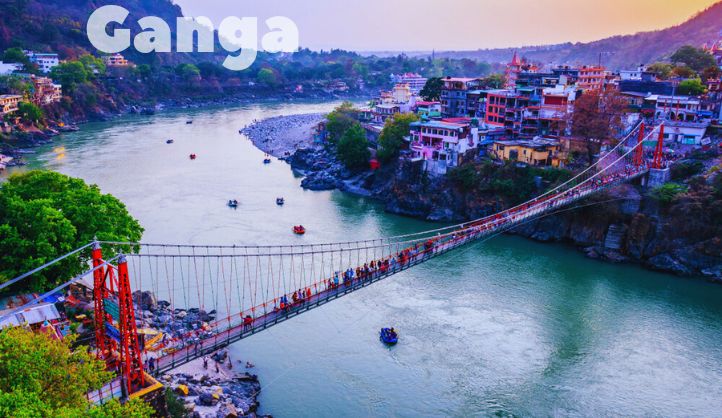 Image Source: Wander Sky
Image Source: Wander Sky
The Ganga, or Ganges, is the longest river in India, measuring a whopping 2,525 kilometers from its source at the Gangotri Glacier in Uttarakhand to its mouth at the Bay of Bengal. The Ganga is the most sacred river in Hinduism and is not just an important waterway but also a symbol of India's spiritual and cultural heritage.
Geographical Journey and Significance
Its source is in the Himalayas. The Ganga flows through the states of Uttarakhand, Uttar Pradesh, Bihar, and West Bengal before entering Bangladesh as the Padma River. In its journey, it flows past large cities like Varanasi, Haridwar, Allahabad (Prayagraj), Patna, and Kolkata, supporting one of the world's most fertile and densely populated areas.
The basin of the river sustains more than 400 million people with water for irrigation, drinking water, and industry, and is responsible for India's economy and way of life. Its main tributaries are the Yamuna, Gandak, Ghaghara, Kosi, Sone, and Gomti.
Cultural and Environmental Impact
The Ganga is the focal point of Hindu worship and festival, with millions making pilgrimages to its banks to be purified and gain spiritual credit. The river, though, suffers from serious pollution problems due to industrial effluent, sewage, and agricultural runoff, and is among the most polluted rivers in the world.
To tackle these challenges, the Indian government initiated the Namami Gange Programme in 2014 by investing more than ₹40,000 crore in schemes to clean and revitalise the river. Up to January 2025, over 300 projects have been finished, including notable progress in sewage systems and conservation of biodiversity.
In Summary
Not only India's longest river but also its most important-geographically, culturally, and economically, the Ganga flows from the Himalayas to the Bay of Bengal and continues to influence the lives, customs, and destiny of the subcontinent's millions.
Sources: Testbook, Career Power, Smart Water Magazine, DD News
Advertisement
Advertisement


